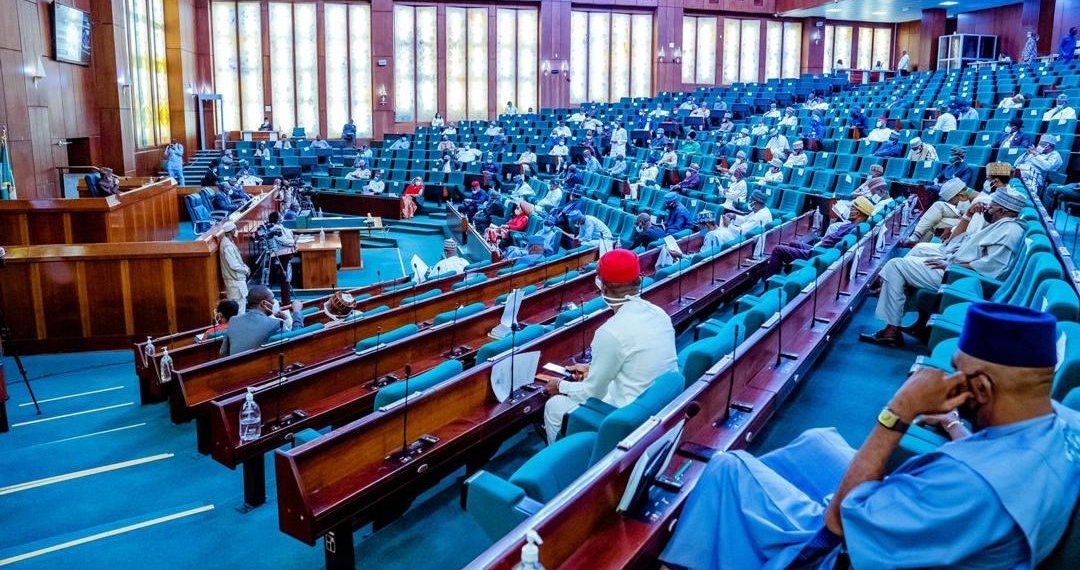...To get all news updates, Join our WhatsApp Group (Click Here)
Also Join our WhatsApp Channel (Click Here)
The office of Auditor-General of the Federation, in its 2019 Report, also said the House of Representatives made payments from a salary account, in billions, without payment vouchers, as required by extant regulations.
In 2019, members of the House of Representatives spent over N5.2 billion at different intervals and on different projects, an audit report has revealed.
These expenditures ranged from running costs to some lawmakers to repairs and maintenance.
However, the spendings could not be accounted for, and there was no evidence to show what the funds were used for.
Besides those mentioned above, the lower chamber also made payments from a salary account, in billions, without payment vouchers, as required by extant regulations.
Details of the discrepancies in the House’ spendings are contained in the annual report of the Auditor-General of the Federation (AGF) for 2019.
The legislature is among the many Ministries, Departments and Agencies (MDAs) of the federal government indicted and queried by the Auditor-General for incessant violation of extant rules, some of which include non-retirement of personal advances within a financial year and grant of cash advances above the approved limit and payments without vouchers.
The Auditor-General, in the report, had said these financial offences could translate to loss of government funds and/or diversion of public funds.
In the report, there was no response to the queries and concerns raised by the Auditor-General either by the House or the management of the National Assembly.
The queries
Top of the discrepancies discovered in the books of the House is how it granted N2.55 billion to members as running cost between July and December 2019.
A regional breakdown of the payment made includes the North-east – 187 million, South-south – 272 million and South-east – 442 million.
Others are North-central – 391 million, South-west – 629 million and North-west – 629 million.
“There was no evidence to show what the funds were used for, and there were no retirement documents despite requests.
“The above anomalies could be attributed to weaknesses in the internal control system at the Federal House of Representatives of the National Assembly,” the report read.
The Auditor-General said this violates Paragraph 1011(i) of the Financial Regulations which states that “all standing imprests must be retired on or before the 31st December of the financial year in which they are issued while Special Imprests shall be retired immediately the reasons for which they were granted cease to exist.
“Retirement will be effected by the production of vouchers and/or cash for the full amount of the imprest.”
The Clerk to the National Assembly was, therefore, asked to provide reasons why running costs granted to members were not retired, recover unretired running costs of N2.55 billion and remit to the treasury.
And also forward evidence of remittance to the Public Accounts Committees of the National Assembly otherwise face necessary sanctions.
In another query, the Auditor-General said the House granted advances of N258 million to 59 staff and additional advances were granted even when they were yet to retire the previous grant.
This, the report says, violates Paragraph 1420 of the Financial Regulations, which states that, “it is the responsibility of all accounting officers to ensure that all advances granted to officers are fully recovered.”
Again, the anomalies were attributed to weaknesses in the internal control system at the House.
In, this regard, the Clerk was asked to: provide reasons why advances granted to officers were not retired; recover unretired running costs of N258 million; and remit to the treasury.
Another N107 million was said to have been granted to two staff for “repairs and maintenance of unspecified residential quarters.”
“The Federal Government was deprived of the statutory Value Added Tax and Withholding Tax of N10.7 million accruable if the work had been awarded to contractors, and there was no evidence to show the advances were retired.
Therefore, the Clerk was asked to account for the sum of N107.9 million advances granted for unspecified purposes; recover and refund to the treasury.
More discrepancies
In the same year, the House paid N1.6 billion to revenue authorities, between February and December 2019.
The payment included Pay As You Earn (PAYE) from six members, car loan recovery from five members, and housing loan recovered from six members for N488 million, N401.2 million and N705.4 million, respectively.
The payments were, however, made without acknowledgement receipts from the relevant revenue authorities, thereby violating Paragraph 220(i) of the Financial Regulations which states “sub-accounting officers who function as revenue collectors will bring their collections to account direct into their cash books, the receipt being acknowledged on General Receipt Form (Treasury Book 6) or the appropriate receipt or license form.”
While he was asked to explain the non-acknowledgement on Treasury Book 6 of revenue collections, the Clerk was asked to recover and refund to the treasury, the sum of N1.6 billion with acknowledgement Treasury Book 6 as evidence.
Another N1.01 billion was discovered to have been paid from a salary account.
The payments were made without the preparation of payment vouchers as required by extant regulations.
According to the report, this violates Paragraph 601 of the Financial Regulations, which says, “all payment entries in the cash book/ account shall be vouched for on one of the prescribed treasury forms.
“Voucher shall be made out in favour of the person or persons to whom the money is actually due, under no circumstances shall a cheque be raised or cash paid for services for which voucher has not been raised.”
And to this regard, the Clerk was asked to provide reasons for making payments from a salary account without payment vouchers.
He was also asked to account for the sum of N1.01 billion, remit the sum to treasury and forward evidence of remittance to the Public Accounts Committees of the National Assembly.
The National Assembly, particularly its public accounts committee, is known for always talking tough and issuing threats (including arrest warrants) to MDAs whenever they are indicted in the Auditor-General report.
Threats without actions
The Senate public accounts committee, had, on several occasions, threatened heads of major agencies like the Nigerian National Petroleum Corporation, the Central Bank of Nigeria, Minister of Information and the Niger Delta Development Commission.
The committee had even threatened not to approve the annual budgets of these MDAs but it all fell to the ground.
The Senate President, Ahmad Lawan, had also threatened to name, shame and prosecute defaulting MDAs.
However, with the latest audit report indicting the legislature, Nigerians wait to see how the lawmakers will address the discrepancies pointed out.
- Premium Times
You can get every of our news as soon as they drop on WhatsApp ...To get all news updates, Join our WhatsApp Group (Click Here)
Also Join our WhatsApp Channel (Click Here)

















